You’re unique. And so is RYTARY.
Inside each RYTARY capsule is a unique combination of time-release beads.
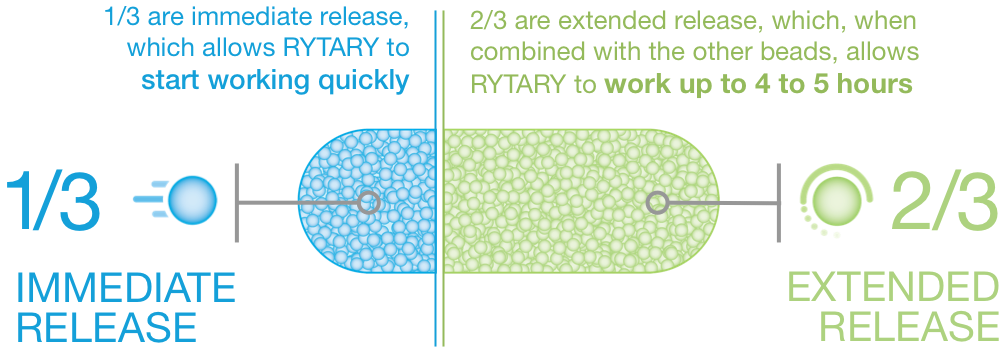
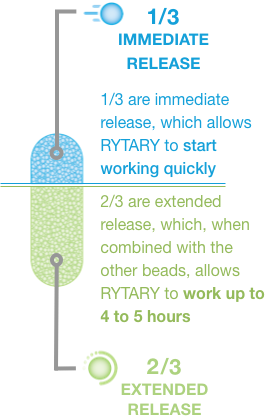
Together, this may reduce the amount of “off” time you experience each day.
RYTARY works to keep medication levels steady.
Medications like IR CD/LD work for many people with Parkinson’s. But over time, people who take them may begin to experience “off” time, when their medication isn’t working to manage their symptoms.
However, when a clinical study compared the way RYTARY behaves in the body to other CD/LD medications, it found that RYTARY was able to keep LD levels steady for longer than those other medications.
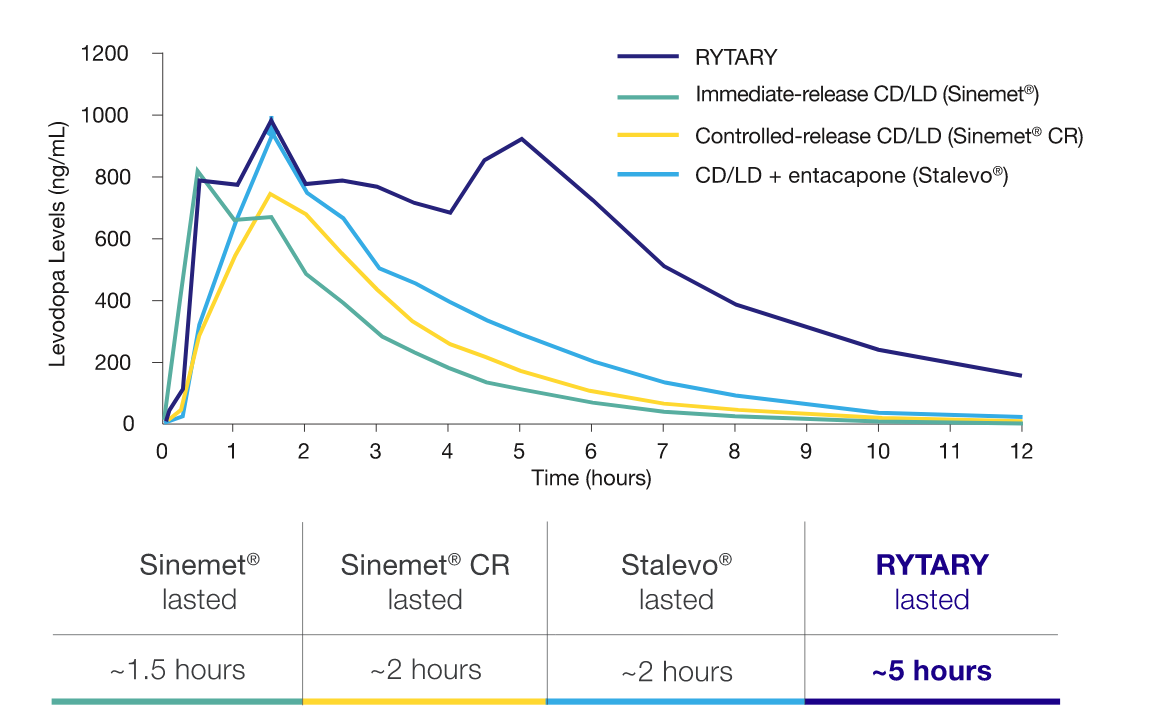
When I told my doctor about how often I was experiencing ‘off’ time, we talked about switching to extended-release RYTARY. Our hope was that it would keep me on a more even keel, and it does do that for me.Individual results may vary.PhilON RYTARYSINCE 2015
Let RYTARY help the real you shine through.
- After switching to RYTARY, people had significantly less “off” time than they did when taking IR
CD/LD
— Percentage of “off” time at study start and study end: 36.9% and 23.8% with RYTARY vs 36.0% and 29.8% with IR CD/LD*
- After switching to RYTARY, people had significantly more “on” time without troublesome dyskinesia
than they did when taking IR CD/LD
— 1.8 hours with RYTARY vs 0.8 hours with IR CD/LD‡
- After switching to RYTARY, people also experienced a significant improvement in motor functions, which can help when performing daily activities
- A different analysis of the same study found that optimized RYTARY provided more hours per dose of
“on” time compared to optimized IR CD/LD
— Hours of “on” time per dose at baseline and study end: 2.17 and 3.55 with RYTARY vs 2.24 and 2.38 with IR CD/LD
In a clinical study, the most common side effects occurring in at least 5% of people treated with RYTARY and at a higher rate than IR CD/LD were nausea and headache.
*Study end=Week 22 or early termination; P<0.0001 vs IR CD/LD.†These were secondary measures of the study.
‡P=0.0002 vs IR CD/LD.
§This was a post hoc analysis of the study; P<0.0001 vs IR CD/LD.
I have more ‘on’ time with RYTARY. Parkinson’s doesn’t stop me from stretching and staying physically active as my doctor recommended.Individual results may vary.DebbieON RYTARYSINCE 2015
Everyone’s dose of RYTARY will be a little different.
- People who took IR CD/LD in the past will be prescribed a dose of RYTARY based on their old regimen—but the dose will be different.
- People who are new to treatment will be prescribed a standard dose of RYTARY.
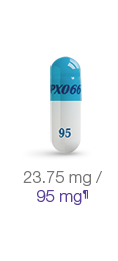
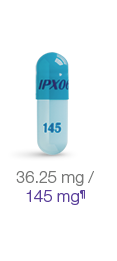
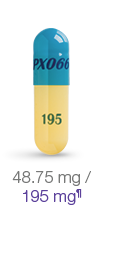
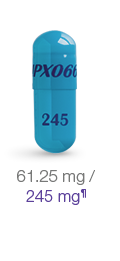
¶Carbidopa/levodopa.
Capsules may not be representative of actual size.
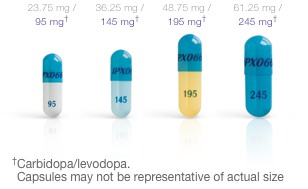
RYTARY was shown to have
a similar safety profile as IR CD/LD.
Knowing that the side effects might pass, and to hold on and ride it out made a difference. My side effects improved after 2 months, and I was happy with my results with RYTARY.Denise, on RYTARY since 2016Individual results may vary.
If “off” time is getting in the way of your time,
RYTARY may be able to help.
If you answer “yes” to any of the questions below, ask your healthcare provider if RYTARY could be right for you.
- Is it hard to predict how your day will go because of “off” time?
- Is Parkinson’s getting in the way of making plans or doing everyday activities?
- Could you benefit from a treatment option that lasts up to 4-5 hours?
Moving ON with RYTARY.

Get information to help you on your journey.
Sign up to receive free resources, ongoing communications, and more.
SIGN UP